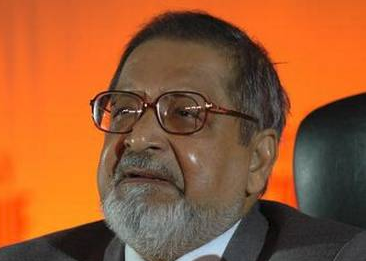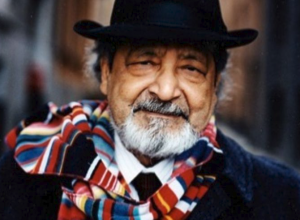
Nobel Prize-winning novelist VS Naipaul dies aged 85

Sir Vidiadhar Surajprasad Naipaul, the Noble prize-winning author, has died at the age of 85, who was a master stylist story-teller with a clear vision for the ironies, tragedies, sufferings and was a great writer of the simple English sentence. His travel writing was honest, refusing to glamorise the developing world and his fiction was often merciless with funny anecdotes.
He attacked the cruelty of Islam, the corruption of Africa and the self-inflicted misery he witnesses in the remotest and poorest parts of the world.
He once declared “There probably has been no imperialism like that of Islam and the Arabs” and he told one interviewer,” I think women unequal to me, Women were narrow and overly sentimental.”
When Salman Rushdie went into hiding after The Satanic Verses, Naipaul described the fatwa as “ an extreme form of literary criticism”.
Naipaul was born in rural Trinidad on 17 August 1932 and his grandparents have been labourers of the great nineteenth-century Indian diaspora who had settled in the Caribbean. Vidia was raised as a Hindu, part of a displaced community within a plantation society. Vidia’s father, Sreeprasad, was a journalist for the Trinidad Guardian who revered in Shakespeare and Dickens. He would read the great works of European literature aloud to his children- Giving the young Vidia a big incentive for writing.
He showed his affection for Trinidad describing as an “unimportant, uncreative, cynical dot on the map”, he did not mince word about Britain, finding it a second-rate country of “bum politicians, scruffy writers and crooked aristocrats.” He described “England is divided by class system and India is divided by caste system”.
From 1938 to 1942 Vidia was a pupil at Tranquillity boys’ school, after which he began his “ sound colonial education” at Queen’s Royal College, the country’s oldest and most British secondary school. In 1950, Naipaul went to the university college, Oxford, to study English and became a writer.
Five years later, he moved to London with his new wife, Patricia Hale – who he had met at college, and when his father died he found himself in a small isolated world and said: “ I became my flat, my desk, my name”.
His early books were The Mystic Masseur (1957), The Suffrage of Elvira (1958) and Miguel Street (1959)- were set in the Caribbean and published in quick succession. His book A House of Mr Biswas took more than three years to write and by the time of completion he knew much of it by heart. Mr Biswas was from Trinidad, continually striving for elusive success. Biswas represented Sreeprasad while the character’s son, Anand stood for himself and about their relationship with sharp sentences and merciless pen.
The first of his 14 non-fiction works, The Middle Passage (1962), was a detailed report on West Indian societies as “ half-made societies that societies that seemed doomed to remain half-made” as they lacked the self-knowledge or the will to reinvent themselves in the independence period.
In one of his interviews he described Tony Blair as a “pirate” whose “ socialist revolution” created a “plebeian culture”, dismissing Dickens as a writer who died of “ self Parody” and EM Forster as a man who knew nothing about India “ but the garden boys who he wished to seduce”.
A Knighthood followed and in 2001 he received the Nobel Prize for Literature when the Academy compared him to Joseph Conrad and described his ability to “ transform rage into Precision”.
